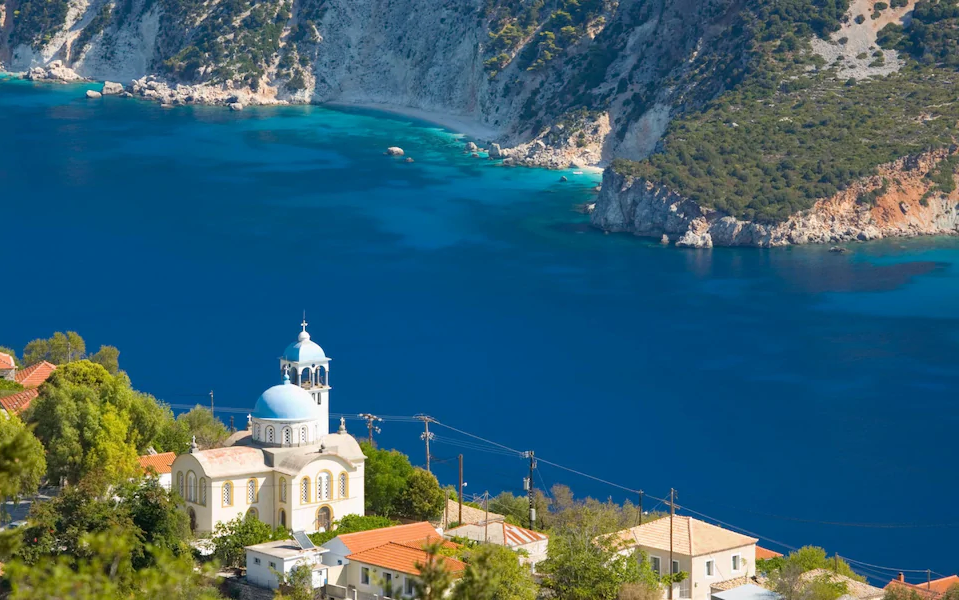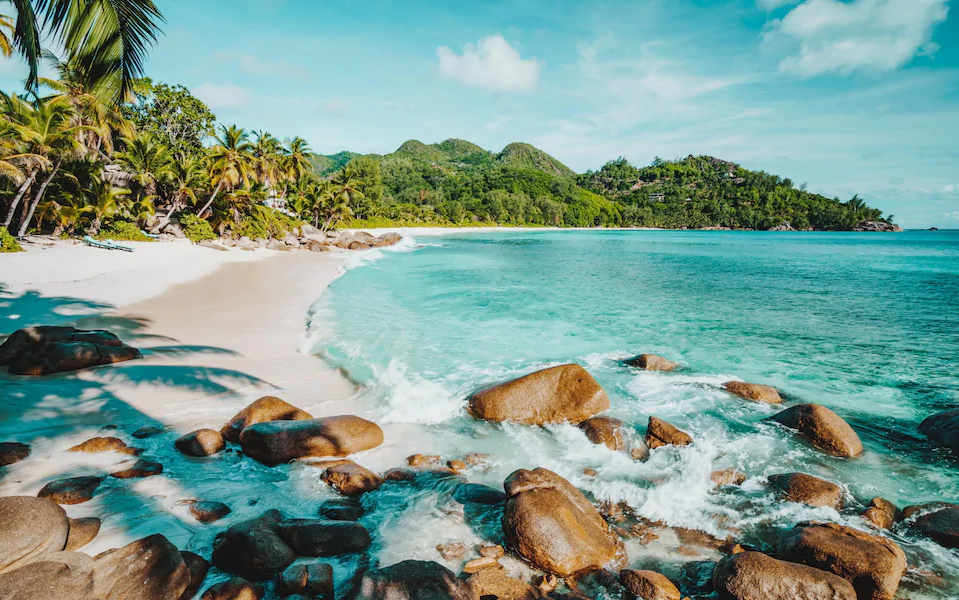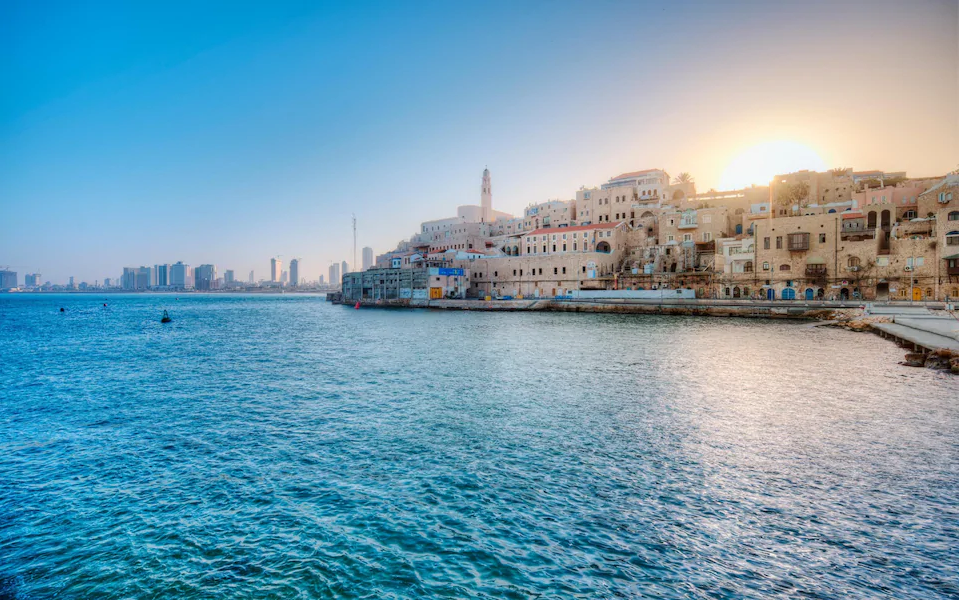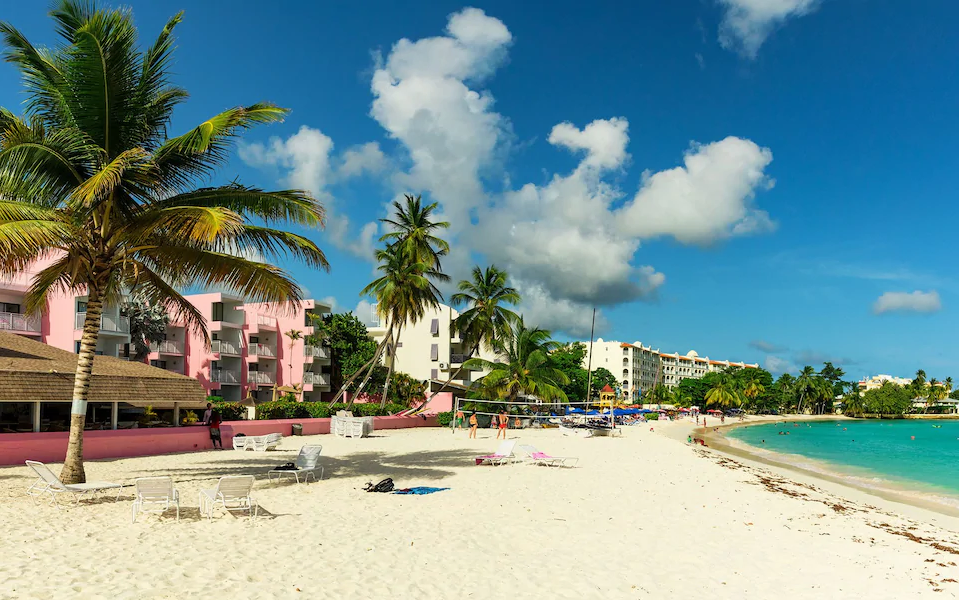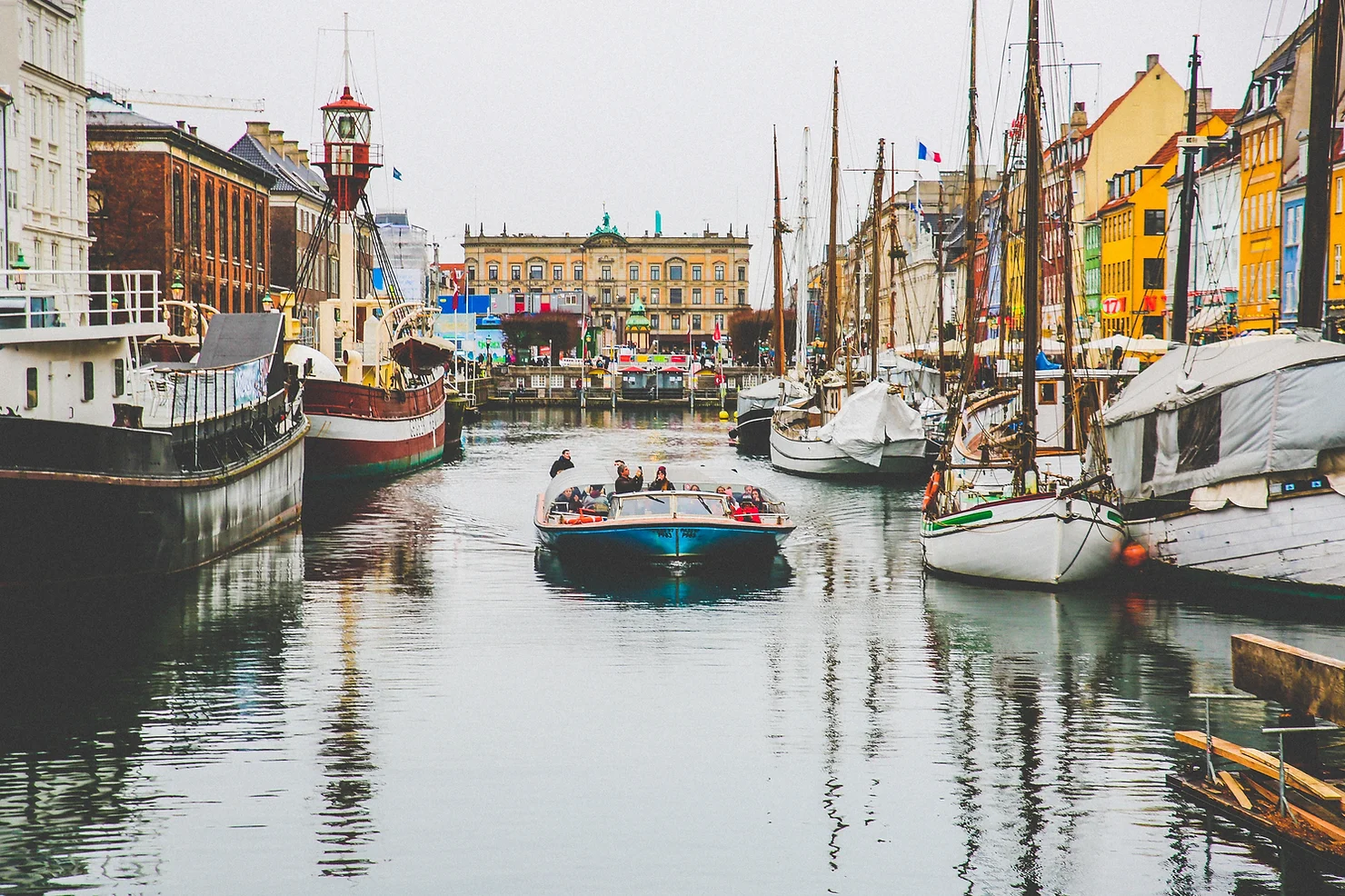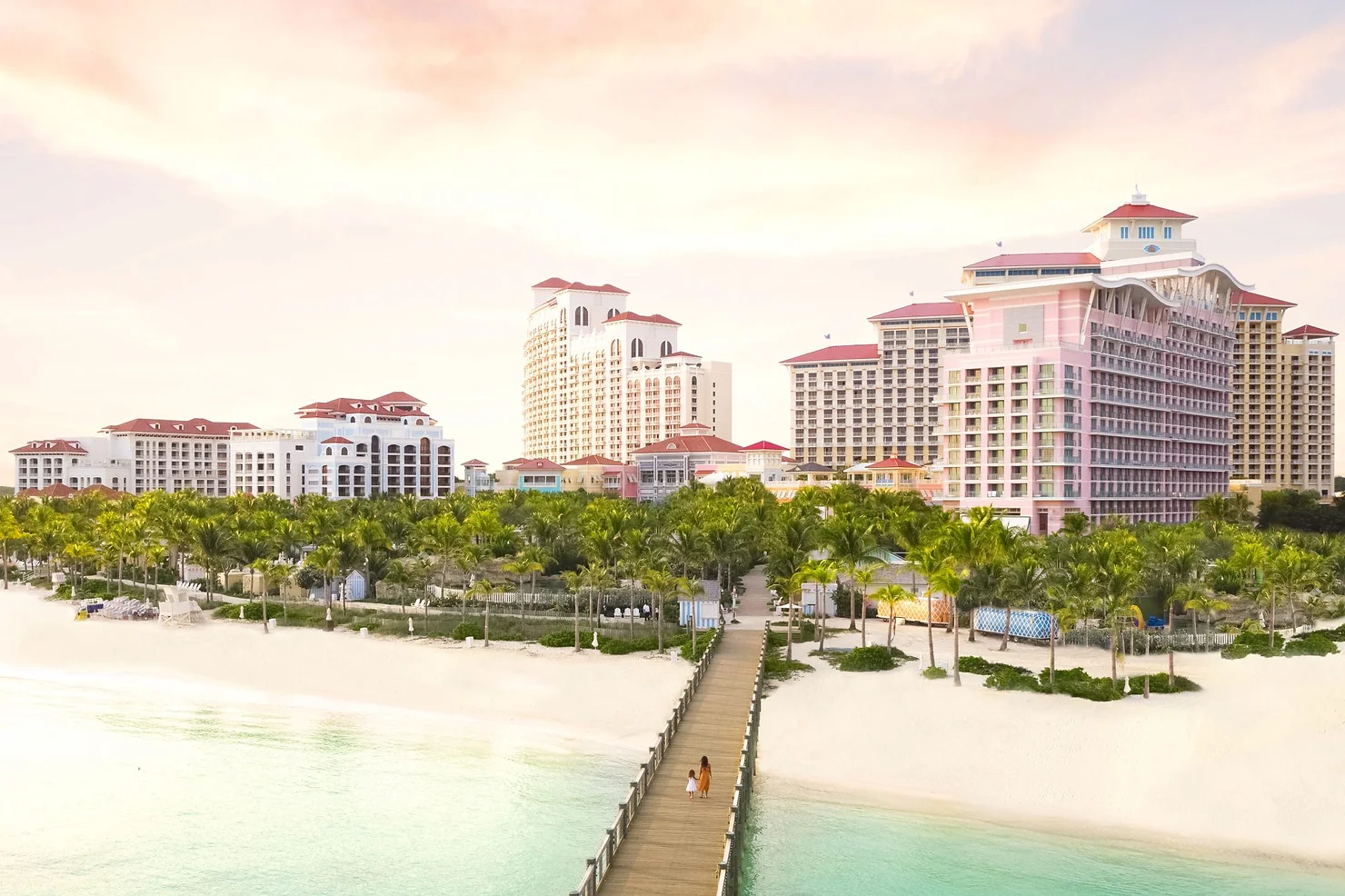The five destinations most likely to make the travel ‘green list’ this summer
We have crunched the data to identify the countries looking promising for a summer getaway
This article from the London Telegraph, struck me as interesting, as we all are thinking – when can we start thinking about travel? When will we, personally, think its safe enough to travel again, when will the numbers be low enough, when will the quarantine on the return be abolished?
Everyone has their own definition of what’s considered safe and normal. I have no answers for you but I know people are starting to call me, asking questions. Even though this article was written for the UK market I think it’s choices are still applicable for Canadians, so I hope this article lets you start thinking…
It is the question on everyone’s mind. Will we, or will we not, be able to travel abroad this summer? And if so, where?
At this very moment, the rules are straightforward: you are not allowed to travel overseas for non-essential reasons. Those who do will have to take a test before travelling home, and enter a 14-day quarantine at home (with one test, on days one, and a mandatory stay at a Government-approved hotel (costing approx $2000CAD) .
The UK has a red list which currently features 33 countries with high prominence of the South African and Brazilian variants, including Portugal, the UAE and South Africa itself. There are reports that Spain and the USA could soon be added to the list, due to local transmission of new variants and close travel links with South America and Portugal.
That’s what’s going on now. When it comes to our summer holidays, the outlook is somewhat hazier. The Government has been tight-lipped when it comes to offering any roadmap for when international travel will resume, so the possibility remains that we will not go abroad at all this summer.
But let us work with one possible scenario. It is July. Canada’s vaccination drive has been a roaring success, Covid cases, deaths and hospitalizations are right down across the country, new variants have failed to drive them up, and everyday life resembles some kind of normality. Other countries are in similar positions, meaning we can start to open up our borders and build a ‘green list’ of countries we can visit on a travel corridor basis.
Of course, we are dealing with an ever-changing situation here (just two months ago we didn’t even know about the UK, South African or Brazilian variants) so to predict the best bets for a summer holiday must come with a very big caveat: book at your own risk, and consider these factors before you do so.
But we do now have information and data beyond case numbers per 100,000 (the prime consideration for last year’s travel corridors list) which can help us to build a better idea of where we might be able to travel in the summer of 2021.
We have considered the following factors in building our green watchlist:
How is the vaccination drive going?
Did it reopen to UK arrivals in 2020, without quarantine?
Is the Government in support of vaccine certification to waive quarantine for arrivals?
What are the current case numbers?
Does it have hotel quarantine, or other prohibitive border policies in place?
Greece
Vaccines administered: 697,245 doses (6.5% of population)
Cases per 100,000 (7 days): 73.6
There are a number of reasons why Greece is on our holiday green watchlist. The first is that it has a track record of opening its doors during a pandemic. Last summer Greece was one of the first destinations to reopen to tourism (on June 15) and Greece was a trailblazer when it came to testing arrivals rather than putting them into a mandatory quarantine.
Early in 2021, Greece’s Prime Minister Kyriakos Mitsotakis became the first European leader to call for a vaccine certificate as a means to scrap quarantine and tests for arrivals. Speaking on Bloomberg last Tuesday, he said: “People will want to travel, especially during the summer, and it doesn’t make much sense not to facilitate travel – to the extent that we feel comfortable – to welcome people who have been vaccinated.”
“For those who have been vaccinated, we want to make it as easy as possible for them to be able to travel to Greece.” He added that those who have not been vaccinated will need to take tests to enter Greece.
Mitsotakis is already putting his vaccination certificate philosophy into action. Greece has formalized an agreement with Israel whereby vaccinated arrivals can travel between the two countries without quarantine, and Cyprus is reportedly looking to enter this ‘travel bubble’ by April 1.
Greece’s own vaccination process is digitized and moving faster than many expected, and the country has a track record of controlling Covid-19 better than other European countries. To date, it has recorded 179,802 cases and 6,297 deaths. Portugal, a country with an equivalent population of just over 10 million, has by comparison recorded 797,525 cases and 15,962 deaths.
With all these things in mind, we are putting Greece high on our watchlist of countries for a summer holiday, if a travel corridors list were reintroduced.
Iceland
Vaccines administered: 25,718 doses (7.2% of population)
Cases per 100,000 (7 days): 3.5
Iceland is high on our ‘green watchlist’ given its Covid track record, vaccination drive, and approach to vaccinated arrivals. Last month, Iceland became one of the first countries in the world to waive quarantine or testing measures for residents arriving back into the country with an international vaccination certificate. Those who can provide proof they have previously had a Covid-19 infection are also exempt.
“The aim is to facilitate the movement of people between countries so that individuals can present a vaccine certificate at the border and are then exempt from COVID-19 disease control measures in accordance with the rules of the country concerned,” said a spokesperson for the Ministry of Health.
This applies primarily to nationals and residents returning to Iceland, but also to third country nationals who are exempt from current travel restrictions (ie, travelling for an essential purpose). It is not a great leap to deduce that, once travel restrictions are lifted, all third country nationals will be able to enter the country, quarantine-free, with an international vaccination certificate.
More so than many countries around the world, Iceland currently has a strong handle of the virus. In total, it has reported just 6,045 positive results and 29 deaths. Even for its population of 356,000, this is low. The case rate per 100,000 over 7 days is 3.5.
Granted, it may not guarantee heat, but a trip to Iceland over the summer will at the very least guarantee ‘light’ – from May to August, there is some degree of daylight during overnight hours, and close to the summer solstice in June the sun shines above the horizon at midnight.
Seychelles
Vaccines administered: 65,060 doses (67.7% of population)
Cases per 100,000 (7 days): 519.4
The number to focus on here is the first, not the second. The first country in Africa to start a Covid-19 vaccination programme, the Seychelles has set itself the ambitious task of becoming the first country in the world to fully vaccinate 70 per cent of its adult population. With a population of 97,000, and generous vaccination donations from the UAE and India coming through, this is looking achievable.
Right now, the Seychelles is leading the way when it comes to rebooting its grounded tourism industry – the island is welcoming in vaccinated visitors from any part of the world. So long as you have had two doses of a recognized vaccine (including AstraZeneca, Moderna, Pfizer), longer than two weeks ago, you can enter quarantine free.
Note that on January 7 the UK Government red-listed all arrivals from the Seychelles due to fears surrounding the South African variant, and the country is currently seeing its first serious spike in cases. However, if the Seychelles meets its vaccination targets, all evidence suggests transmission will come right down in the coming months, making it a leading candidate for a summer escape – though you may wish to wait until late autumn or winter, to catch the weather at its finest.
Israel Vaccines administered: 7,132,468 doses (78.8% of population) Cases per 100,000 (7 days): 296.5 A slightly farther flung Mediterranean escape perhaps, and admittedly it has fewer connections than Italy and Croatia, but Israel cannot be ignored as a strong contender for a summer getaway. The country is currently leading the charge when it comes to vaccinations. Some 82% of its population has received a dose – higher than any other country in the world. What’s more, Israel has joined Greece in setting a precedent for a ‘vaccination bubble’, which Cyprus is also hoping to get in on. All arrivals between the countries can dodge quarantine on arrival with proof of immunity.
And the Israeli Government has made moves to expand the bubble later in the year. The Tourism Ministry has launched a new campaign, ‘Bring Tourism Back to Israel’, fronted by model Shir Elmaliach – they say they expect to open up to international arrivals “in the middle of 2021”.
The Caribbean
Over the last six months, the Caribbean has been the most reliable corner of the world when it comes to holiday options for Canadians. Prior to the Government scrapping all travel corridors, there were direct flights and hotels looking for our business. All required testing prior to departure or on arrival, or both, as a means to dodge quarantine. Given their willingness to introduce new protocols, and their collective heavy reliance on tourism, it is quite possible that the islands will start accepting some kind of vaccination certificate as an alternative to a negative test.
The snag, of course, is that the summer isn’t the best time to visit the Caribbean. June to November is the official hurricane season, and statistically you are most likely to encounter a major storm in September or October. So with everything in mind, a Caribbean escape could be a safer bet for late autumn or winter.
Beware that cases have been on the rise recently. St Lucia, for example, has seen a five-fold surge in cases over the past month, and Barbados has seen a spike too. Vaccination drives are beginning on the islands, but at a slower rate than in the world’s most powerful nations. The islands have so far been reliant on vaccination donations, including 500,000 doses from Prime Minister Narendra Modi of India.
By Greg Dickinson,DIGITAL CONTENT PRODUCER
22 February 2021 • 10:07am

